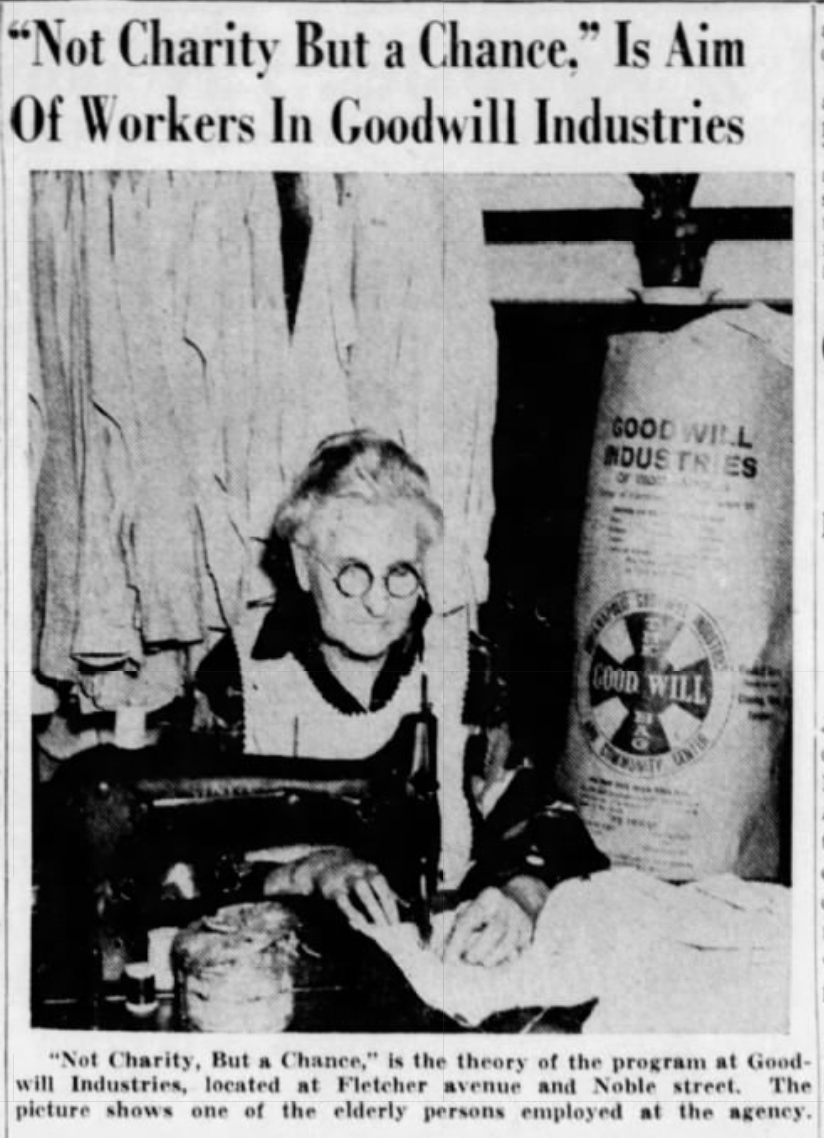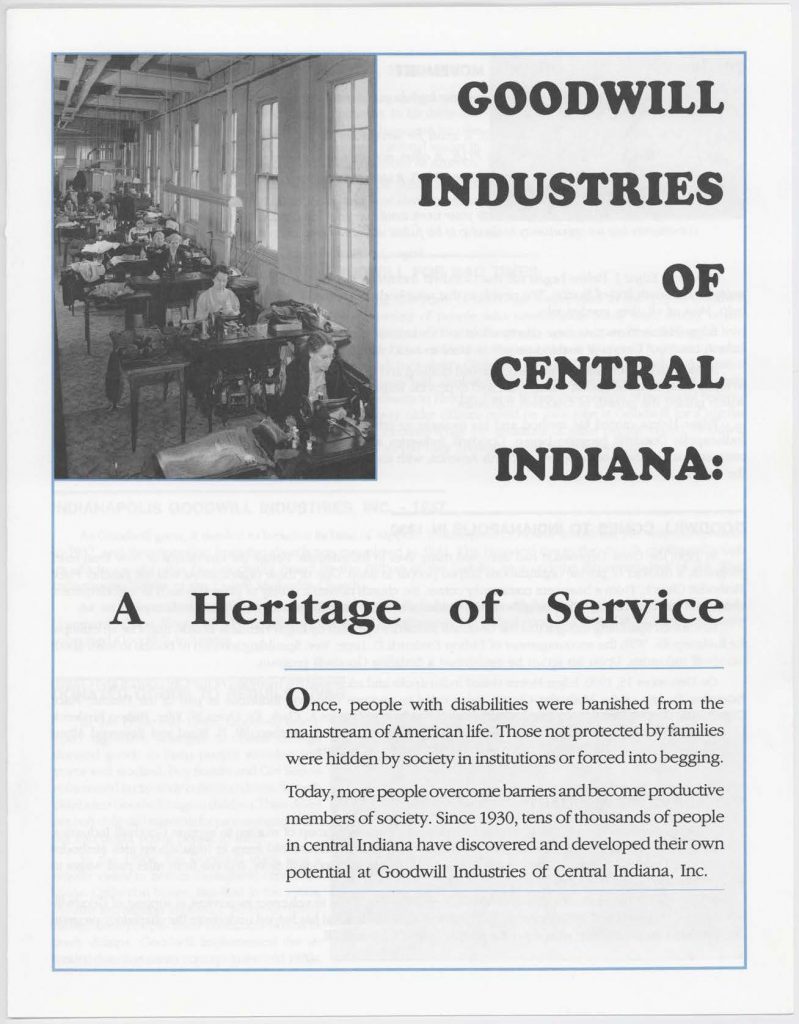Goodwill Industries of Indianapolis began as a result of the . Upon the urging of local church leaders, Rev. Albert J. Spaulding, who came to Indianapolis in 1930 to serve Fletcher Place Methodist Church, traveled to Boston to investigate the organization that Methodist minister Rev. Edgar James Helms (1863-1943) had founded there in 1902. Helms realized the need for food and clothing for the poor in his community. He attempted to address the need by collecting used item donations from wealthier Bostonians, then repairing and reselling them to the poor. The organization began to focus on training those in need to repair clothing or goods, and in doing so provided employment opportunities. After incorporating it in 1905, Goodwill Industries expanded across the United States.

Spaulding established the Indianapolis branch in the basement of Fletcher Place Methodist Church, where the congregation operated a community center that served the neighborhood with such programs as a kindergarten, clubs, and medical clinics. As with the Boston model, the local agency accepted donations of used clothing, shoes, toys, and household items, which were repaired and sold by Goodwill employees to provide the income and wages for residents. While other nonprofits in the 1930s struggled or closed due to lack of funds during the Great Depression, Goodwill’s model of accepting used goods (rather than cash) and refurbishing them sustained the organization.
In 1934, Rev. became Indianapolis’s first chief executive officer. Lytle, a graduate of Evansville College (University of Evansville) and Boston University, learned of Goodwill Industries in Cincinnati while serving the Methodist church in Oxford, Ohio. When he arrived in Indianapolis, Goodwill had four employees: two part-time store clerks; a part-time secretary; and a church janitor, who worked part-time picking up donations. Wages were 15 cents per hour; annual sales totaled $2,870.
Under Lytle’s leadership, Goodwill Industries of Indianapolis was incorporated in the state of Indiana in 1937. The organization also expanded to serve the larger Indianapolis community, which made necessary a move to new headquarters on South Senate Avenue, the former headquarters of , in 1943.
In the 1950s, the agency extended its operations into different kinds of manufacturing and began subcontracting its services to local businesses. Outgrowing its building on Senate Avenue, Goodwill moved to 1635 West Michigan Street in 1960. The new Indianapolis facilities became the first in the U.S. to be constructed specifically for the use of a Goodwill organization.

In 1969, Lytle retired, and the Indianapolis Goodwill became the first Goodwill and the first organization in Indiana to be accredited by the Rehabilitation Accreditation Commission. In 1971, the Goodwill Industries Foundation of Central Indiana, Inc. was created to support the Indianapolis Goodwill and award scholarships for students interested in charitable work.
The organization reincorporated as Goodwill Industries of Central Indiana, Inc., in 1974 to reflect its focus on regional operations, and in 2017 merged with Goodwill of Southern Indiana to become Goodwill of Central & Southern Indiana.
Goodwill of Central & Southern Indiana serves 39 counties. The organization continues to accept donations, manage resale stores, and provide job training. It also established the mayor-sponsored Metropolitan High School (2004) and the adult-focused Excel Center (2010). Goodwill implemented the national community health program, Nurse-Family Partnership, to increase healthcare access for new moms in Indianapolis in 2011 and served over 3,400 families in its first 10 years.
Goodwill has won recognition for innovative programs that teach independent living skills and provide vocational testing, rehabilitation, and job placement. Clients include people with physical and developmental disabilities and those with social or emotional barriers to employment.

Help improve this entry
Contribute information, offer corrections, suggest images.
You can also recommend new entries related to this topic.